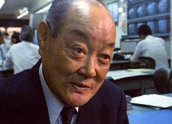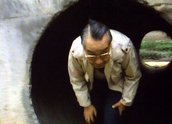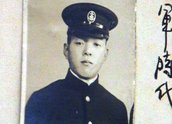


Breakout (1984)
Synopsis
Breakout covers the mass escape of Japanese prisoners of war from Cowra on 5 August 1944. It is one of the biggest POW escapes in world history. Two hundred and thirty four Japanese prisoners and four Australians lost their lives. Most of the Japanese were killed while trying to escape and others died by their own hand. Forty years later, two Japanese men return to Australia, joining a pilgrimage to Cowra to visit the graves of their fallen comrades. The complex story of the Cowra breakout is told by these two men, the Japanese leader of the breakout and Australian guards using interviews, narration and historical and propaganda film footage.
Curator’s notes
Most of the Japanese POWs in the Cowra camp were caught in New Guinea. The Japanese regarded capture and detention as shameful. Soldiers lived under the 'Bushido Code’ – a strict samurai warrior code demanding 'loyalty, devotion and honour to the death’. Prisoners were disgraced and all Japanese soldiers had an obligation to die for their Emperor. If captured by the enemy, they were expected to kill themselves and could not return to their homeland with dignity. This philosophy would have been almost impossible for the Australian authorities and guards to comprehend. When the unauthorised bugle sounded in the middle of the night, and 800 Japanese prisoners ran screaming from their huts, the Australians thought that the Japanese were attempting to take over the camp, not get themselves killed.
Curtis Levy came across the story of the mass suicide at Cowra while he was researching the life and death of Yukio Mishima. A well-known novelist, Mishima publicly committed a samurai form of suicide called seppuku in the 1970s after a failed attempt to inspire a coup d’état at the Japan Self-Defense Forces headquarters. The events at Cowra were inspired by the same samurai ethic but on a mass scale. In 1984, the topic was still considered very sensitive and Levy was also intrigued by this veil of secrecy.
Breakout is a well-constructed and moving documentary that explains very complex issues. Told by both Japanese and Australian survivors, it impartially apportions accountability for the tragedy. Breakout won the award for Best Television Documentary at the Chicago International Film Festival in 1986 and screened on Network Ten in late 1985. A television mini-series, The Cowra Breakout, was produced by Kennedy Miller in 1984 and a feature drama on the same subject – Broken Sun – was released in 2008.
- Overview
- Curator’s notes
- Video 3 clips

- Principal credits
- Find a copy
- Make a comment
- Map
- Add your review



